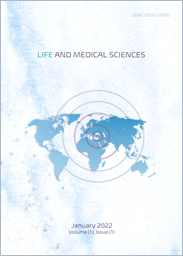
Life and Medical Sciences
Yazarlar: Gülden PAÇACI ÇETİN, Neriman Defne ALTINTAŞ
Konular:-
DOI:10.54584/lms.2022.11
Anahtar Kelimeler:Vitamin D,Inflammation,Critically ill patient,Fluid status.
Özet: In the last decade, vitamin D has an increasing importance due to its demonstrated pleotropic, antimicrobial, and immunomodulatory effects, and has been a subject of interest especially in critically ill patients due to its role on immune functions. The aim of this study is to determine whether vitamin D levels change during the first days of intensive care unit (ICU) admission and to study factors that may affect these variations. Patients admitted to the ICU between March 2014 and December 2014 were included in the study. Blood samples were obtained on the admission day, and the following three days and 25-hydroxyvitamin D levels were measured by high pressure liquid chromatography (HPLC) technique. Changes over time were analyzed with variance analysis if they were normally distributed, otherwise by Friedman tests. A total of 31 patients were enrolled. Of those, 17 (54.8%) patients were women. On admission median vitamin D level for all was 8.52 (5-37) ng/mL. On the third day median vitamin D level for all was 8.85 (5-35.1) ng/mL. There was no statistically significant difference between vitamin D levels which were measured on the consequent 3 days (p=0.553). There was no significant correlation between daily vitamin D levels and changes in levels of CRP, procalcitonin, and albumin (p=0.061, p=0.61, p=0.179 respectively) or daily fluid balance (first day p=0.31, second day p=0.65, third day p=0.13). Our presented data revealed that repeated measurements of early vitamin D levels on consequent days did not have significant differences and CRP, procalcitonin, albumin levels, and fluid balance parameters do not seem to affect early serum vitamin D levels in critically ill patients.